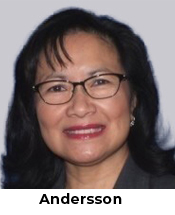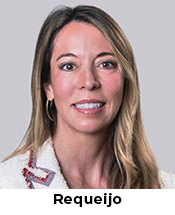ADVERTORIAL

 In today's rapidly evolving health care landscape, skilled nursing facilities (SNFs) face a myriad of challenges. From occupancy concerns and payment issues to regulatory hurdles and rising patient acuity, there's no single solution to address the complex web of difficulties operators face.
In today's rapidly evolving health care landscape, skilled nursing facilities (SNFs) face a myriad of challenges. From occupancy concerns and payment issues to regulatory hurdles and rising patient acuity, there's no single solution to address the complex web of difficulties operators face.
However, certain facilities are finding success by embracing a multi-pronged, holistic approach that incorporates several strategies backed by value-based care principles.
At Curana Health, we partner with SNFs across the country, helping them stay ahead of the curve and improve their patients' overall wellbeing. Through this work, we've identified three specific strategies that significantly benefit skilled nursing operators, allowing them to not just survive, but truly thrive, in the ever-changing senior care landscape.
Leverage Cutting-Edge Technology Solutions
The skilled nursing sector is undergoing a technological revolution, which is characterized by greater levels of interoperability as well as the development and adoption of various HIPAA-compliant technologies, like:
- Remote patient monitoring devices that use radio wavelengths to detect vital signs (including heart and respiratory rate) and activity without requiring a clinician’s presence.
- Real-time intelligence software that identifies patients who may be at high risk for rehospitalization and sends timely alerts regarding changes in patient care settings, hospital discharge summaries, and medical history updates to clinicians and providers (prompting earlier intervention and better outcomes).
- Secure clinical communication applications that improve care team collaboration and allow for the sharing of patient information (that leads to improved clinical outcomes).
 While these technologies have been shown to positively impact facility operations and patient outcomes, they can be costly to implement. That's where a value-based care partner can make a difference.
While these technologies have been shown to positively impact facility operations and patient outcomes, they can be costly to implement. That's where a value-based care partner can make a difference.
“By partnering with organizations that invest in and implement these solutions, SNFs can access cutting-edge technology without bearing the financial burden themselves,” says Sharon Andersson, RN, MBA, information technology consultant for Curana Health “At Curana, our technology solutions are part of our overall offerings and toolkit for success. We invest in the software, devices, monitoring staff, and installation. It's all part of our standard practice, and the implementation is managed by our experienced team.”
In addition to providing SNFs with the aforementioned technologies, clinicians working within value-based care organizations may also utilize best-in-class electronic health record software that allows for interoperability and the capture of complete and accurate resident diagnoses. This raises awareness of quality gaps and provides SNFs’ Minimum Data Set (MDS) teams with access to accurate health records (which support PDPM and Quality Assurance and Performance Improvement).
Find the Right Medical Director
 The role of a medical director in a SNF is more critical than ever before, yet many facilities are not fully leveraging this position.
The role of a medical director in a SNF is more critical than ever before, yet many facilities are not fully leveraging this position.
“The level of acuity in skilled nursing facilities has been increasing steadily for the last several years, with more patients requiring complex and interdisciplinary care after hospital discharge,” says Paula Requeijo, MD, CMD, chief medical officer at Curana Health. “Now more than ever before, it is crucial that medical directors are engaged, available, and knowledgeable about the regulations their facility is held to.”
In addition to being fully engaged with the facility's operations, medical directors should be well-versed in the regulations that govern SNFs, such as the Centers for Medicare & Medicaid Services’ (CMS’) State Operations Manual. They should also actively participate in Quality Assurance and Performance Improvement (QAPI) meetings, review cost and utilization data, and work collaboratively with staff to implement effective workflows.
 “Curana Health’s medical directors are frequently present in our partner facilities and maintain regular communication with staff,” says Tasha Janssen, NP-C, vice president of operations at Curana Health. “They're also supported by on-site nurse practitioners and 24/7 call coverage. This level of involvement helps prevent hospitalizations, drive better health outcomes, and enhance overall quality of care.”
“Curana Health’s medical directors are frequently present in our partner facilities and maintain regular communication with staff,” says Tasha Janssen, NP-C, vice president of operations at Curana Health. “They're also supported by on-site nurse practitioners and 24/7 call coverage. This level of involvement helps prevent hospitalizations, drive better health outcomes, and enhance overall quality of care.”
Stack the Reimbursement Deck in Your Favor
With CMS mandating that all Medicare beneficiaries participate in a value-based care plan by 2030, SNFs have a unique opportunity to participate in institutional special needs plans (I-SNPs).
These Medicare Advantage plans are specifically designed to provide targeted coverage for beneficiaries with special needs, providing a highly coordinated level of care for individuals who require long-term care in skilled nursing facilities.
 “By participating in Medicare Advantage plans like I-SNPs, skilled nursing facilities can experience significant upside in a value-based care solution without having to put up significant capital or take on risk,” says John Emami, vice president and general manager of Align Senior Care (a fully owned and operated subsidiary of Curana Health). “These plans offer senior residents supplemental benefits beyond original Medicare and extensive care coordination services, all while allowing facilities to share in savings by meeting quality benchmarks.”
“By participating in Medicare Advantage plans like I-SNPs, skilled nursing facilities can experience significant upside in a value-based care solution without having to put up significant capital or take on risk,” says John Emami, vice president and general manager of Align Senior Care (a fully owned and operated subsidiary of Curana Health). “These plans offer senior residents supplemental benefits beyond original Medicare and extensive care coordination services, all while allowing facilities to share in savings by meeting quality benchmarks.”
Alternatively, SNFs ready to dive headfirst into value-based care and I-SNPs can develop their own Medicare Advantage plans, receiving the full capitation rate from CMS.
Staying Ahead of the Curve
The SNF landscape is undeniably changing, but by leveraging advanced technology solutions, choosing the right medical director, and exploring innovative reimbursement models, your organization can position itself for success. The key is to adopt a holistic approach that combines these strategies in a way that best suits your facility's unique needs and circumstances.
Driven by the mission of improving senior living residents’ health, happiness, and dignity, Curana Health is dedicated to advancing the adoption of value-based care and transforming the health care experience for senior living residents. Curana’s medical group offers primary, post-acute, and multi-specialty care to seniors in skilled nursing facilities, assisted and independent living communities, and memory care settings. Curana’s accountable care organizations and health plan partnerships support the medical group’s personalized, proactive, and coordinated clinical care model. Additionally, Curana Health’s owned and operated Medicare Advantage Special Needs Plans make care more accessible and affordable for residents, while also offering skilled nursing facilities and senior living operators enhanced operational capabilities and new financial opportunities aligned to improved clinical outcomes. Currently, Curana’s 1,000+ clinicians serve approximately 200,000+ patients annually, spanning 34 states and 1,500+ senior living sites. To learn more, visit www.curanahealth.com.